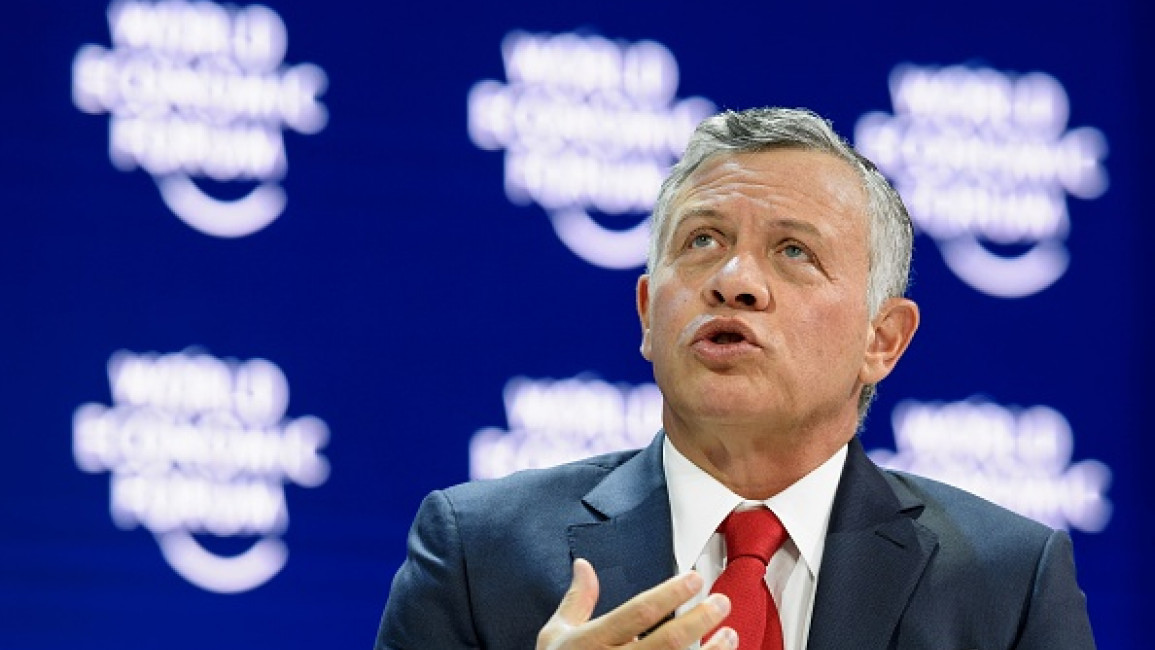IMF visits Jordan, gives $165 million in additional funding
The IMF concluded a two-week working visit on Monday, praising Jordan's progress in making economic reforms and proposing US$165 million in additional funding in light of new economic pressures.
The IMF and Jordan reached an agreement in March 2020 on a four-year loan program to the tune of almost US$1.3 billion, which has since been increased to about US$2 billion.
Ali Abbas, who led the IMF mission to Jordan, praised Jordan's "sound economic policies" since the COVID-19 pandemic and legislation aimed at increasing the country's tax base.
"Going forward, it will be critical to maintain reform momentum, notably, through … strengthening governance of fiscal incentives for investment and improving tax and customs administration," Abbas said on Wednesday.
He further said that the IMF was proposing US$165 million in funding because of "higher external financing needs," likely referring to the global increase in commodities pricing since Russia’s invasion of Ukraine.
The additional funding is still subject to review by IMF management.
Jordan, while making progress on economic reforms, still faces a gloomy economic outlook, with youth unemployment reaching 50 per cent. The IMF revised its expected growth rate for Jordan in 2022, with projected GDP charted at 2.4 per cent rather than the original prediction of 2.7 per cent.
Popular protests over Jordan's economic situation are common, with the hashtag "Jordan is not well," trending consistently on Jordanian social media.
In a dramatic example of rising frustration with the country's joblessness, in February a group of young Jordanian men threatened to commit mass suicide unless they were given jobs.
"The IMF program is important for Jordan's fiscal stability and the program has been going smoothly for the past few years. However, many structural challenges in terms of fiscal policies still remain," Laith al-Ajlouni, an economic policy consultant based in Amman told The New Arab.
While the IMF applauded Jordan's passage of new tax legislation, it emphasized that the implementation of tax collection still needed improvement. It is common for small businesses and individual vendors to avoid taxes entirely through cash-based transactions, with little consequence.
"The Jordanian government is still highly dependent on sales tax instead of progressive income taxation, which is becoming a burden for Jordanians and a driver for higher prices and inflation in the country," al-Ajlouni said.
The IMF loan facility also required Jordan to cut subsidies in the electricity and water sector, which sparked criticism from the public.
"The public was not happy with removing subsidies on water and electricity; however, the government is still subsidizing the poor," al-Ajlouni added.
He pointed to an electronic platform, Takaful, launched in 2019 which allowed Jordanians to continue to qualify for subsidies depending on their level of need.
Still, more progress needed to be made in terms of supporting the country's most vulnerable, al-Ajlouni said. "Despite the IMF asking that social spending be increased, it remained almost constant over the past few years."


![President Pezeshkian has denounced Israel's attacks on Lebanon [Getty]](/sites/default/files/styles/image_684x385/public/2173482924.jpeg?h=a5f2f23a&itok=q3evVtko)



 Follow the Middle East's top stories in English at The New Arab on Google News
Follow the Middle East's top stories in English at The New Arab on Google News


